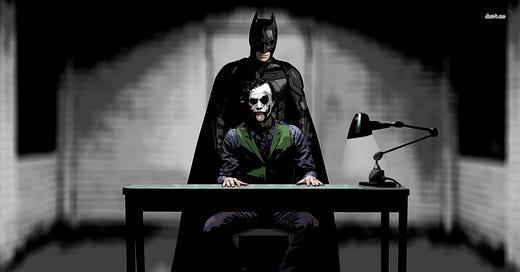Storytelling for founders / Aaron Sorkin
Drama rules of Aristotle, Aaron Sorkin, David Mamet, Neil Gaiman, Joyce Carol Oates
“Money flows as the function of stories” — Don Valentine, founder of venture capital
Keep a fast pace. Each sentence moves the plot forward — or you cut it. Especially if you like it. Use minimum steps. Always be moving towards a punchline.
Same as imitation hardwired into our unconsciousness for generations, storytelling is counterintuitive. But it might be the only way of effective communication.
Even in 15-second stories or photographs, fight for all of these bullets. I excluded a rule that a story happens in on one place during 48 hours.
First Act: exposition
Explain the rules of the world; mention all the tools which will appear later. Hamartia: an action not taken which could save the hustle.
An inciting event happens to the hero. Because of it, the hero has to get from point A to point B. His actions are re-actions. What he thinks and says, and how he does it, is unimportant. Only actions matter.
Explain the stakes: what happens if he doesn’t get to Point B must be as bad as possible.
Clearly state the obstacles: physical world, own mind, or enemy. An enemy is a double of the hero. Doubles often appear as opposites — blonde vs brunette or evil vs good, but they compete because they are the same.
Describe how the hero is of a high social status and what’s their conflict of extreme flaws & powers (genius but super lazy)
Facts & numbers: build the story scientific enough for those who enjoy imagining themselves as intellectuals
Middle Act
Hero’s plan to get the wanted fails.
Hero makes a confession to any sort of a priest.
After the stress relieved through confession, a new POV makes the hero remember about the “Gun hanging on the wall” mentioned in the first act. Using that gun is the next plan.
Final Act
The hero “doesn’t get what he wants, he get’s what he deserves”.
During the journey the plot of the story transforms the hero to an opposite of himself portrayed in the beginning. State it. This transformation is the actual goal of the story. Be big: i.e. the most powerful man in the world becomes a beggar.
Pity & Fear: the audience feels Pity because the hero is so poor. Fear, because the hero appears relatable and all that happened fast and so suddenly. Other emotions are unimportant.
If you are a founder, you are the hero and the writer. Figure out your story, check all the bullets and deliver it straight, or others will popularize their versions of you.
These notes were learned from the works of Aristotle, David Mamet, Aaron Sorkin, Neil Gaiman, Joyce Carol Oates, Judd Apatow, Werner Herzog, Malcolm Gladwell and I think wouldn’t be possible without David Rogier. Please don’t keep it to yourself and tweet me if I’m wrong somewhere — @antonabramov


